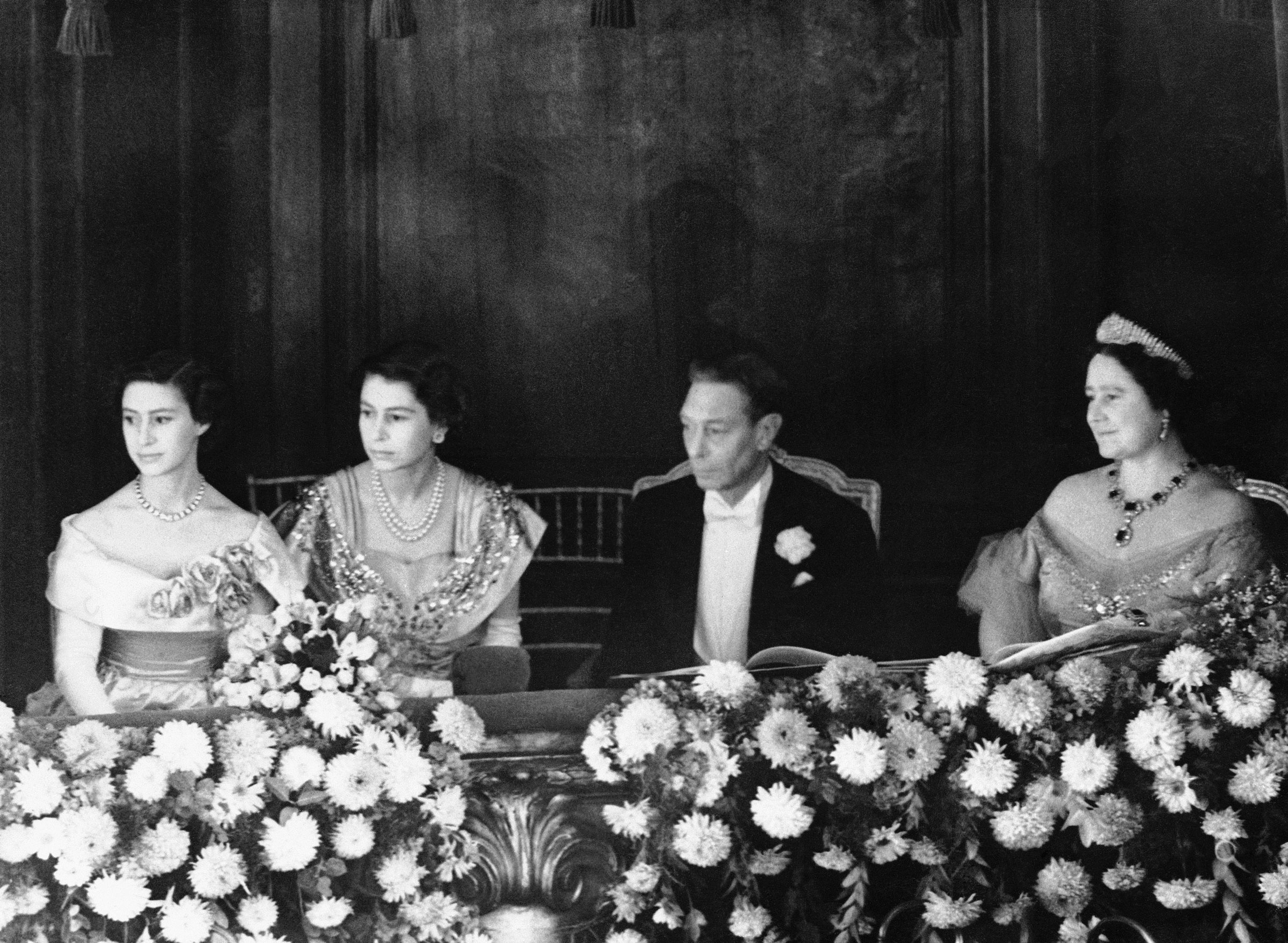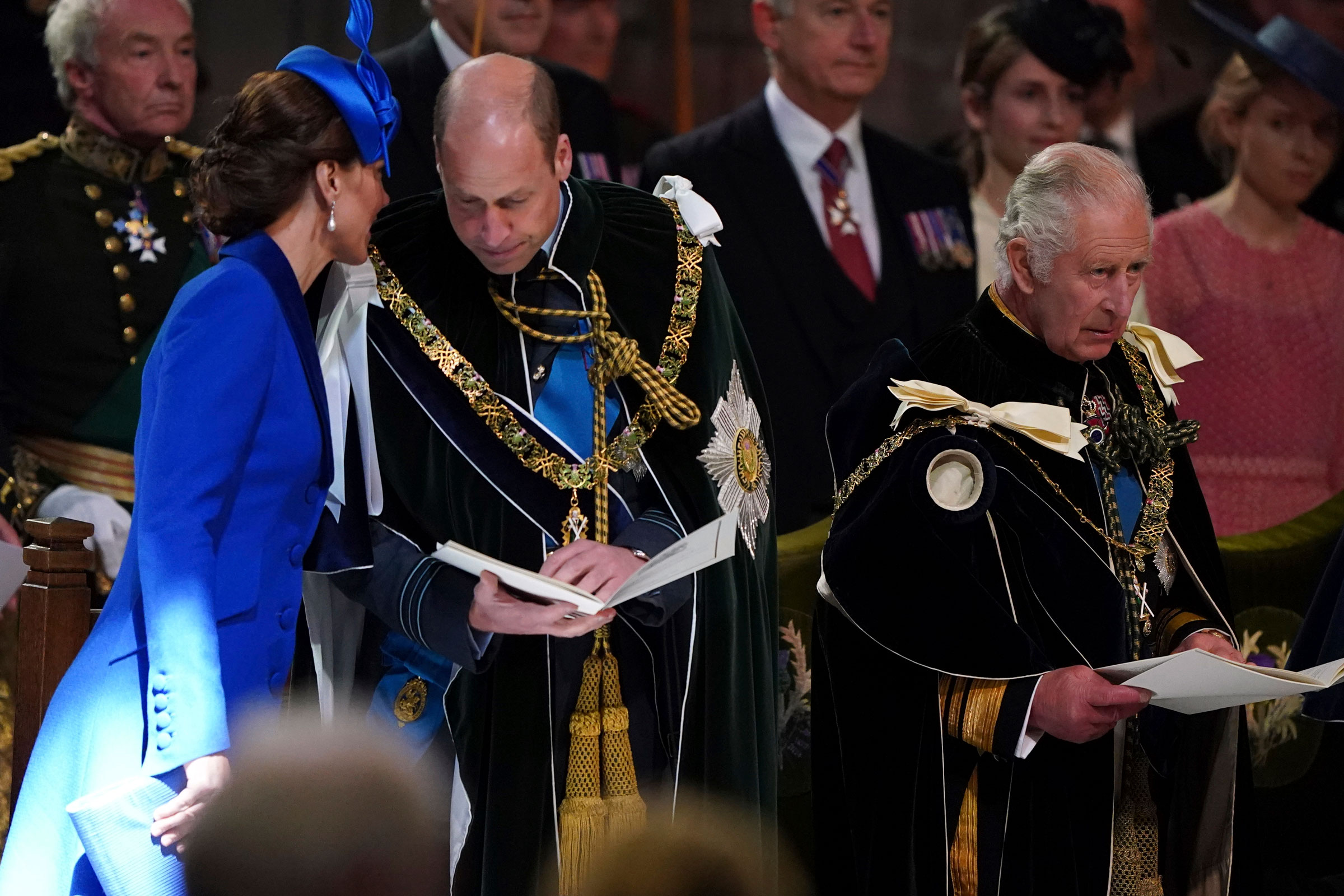While Kate Middleton has been absent from royal duties for two months due to a “planned abdominal surgery,” the British public has been full of speculation about what's going on with their future Queen Consort. But the royal family has always held a fine line between balancing private health matters with disclosure to the public they serve.
“You could argue that details about a head of state are in the public interest,” says Richard Fitzwilliams, an expert on the royal family. “But on the other hand, to what extent does a public figure have a right to privacy?”
Kate's absence fits into a long and evolving history of how royals have chosen to handle health issues. Past generations often shrouded them in secrecy. Perhaps most famously, in the 1950s the British public was not told when King George VI had lung cancer. In 1951, he had his left lung removed because of what was vaguely described as “structural abnormalities," and cancer was not mentioned in his death announcement.
Occasionally, past generations would be more open about less significant problems. Once in 1982, when Queen Elizabeth, the Queen Mother had to visit the hospital after nearly choking to death on a fishbone, she issued a statement to the press, joking, “It was only the salmon getting its own back."

“The fishbone is quite revealing because they tended to be more open about minor instances,” says Gareth Russell, a historian and author who focuses on the British royal family. “Britain was a much more reserved society in the 20th century, and in families across the land and across the social spectrum, cancer or fatal illnesses often weren't discussed.”
Kate and William’s approach has proved to be starkly different, as they’ve addressed private matters with far more candor. “Kate and William are members of a different generation, so they feel no shame in being open about challenges,” says Clare McHugh, a royal historian and author.
Neither Kate or William have shied away in the past from speaking out about health matters. Prince William has spoken extensively about the importance of mental health, and Kate spoke about the difficult morning sickness she faced during her pregnancies. She also revealed her postpartum baby bump in photos hours after giving birth to her son, Prince George.
In part, it’s a necessary tactic for the internet age, in which secrets are much harder to keep. “I think they do recognize that in order to survive and flourish in a modern era they need to be honest about what is going on with them,” says McHugh. “It’s better for them to be candid up front rather than let internet rumors fly.”
That they have previously been somewhat transparent only makes their current silence stand out, experts say. “That’s why William and Kate’s reticence about what's going on with them is odd,” says McHugh.

As Kathryn Lamontagne, a lecturer in Social Science at Boston University says, sometimes saying nothing causes more of a stir than addressing the problem head on, a lesson the Royal Family learned when Queen Elizabeth II missed parts of a major event in the months before her death. “For Royal followers, her absence from the Platinum Jubilee celebrations in 2022 was a glaring sign of how unwell she was and a clear indicator of a serious issue on the horizon,” Lamontagne said in an email.
Still, despite her candor in the past, in many ways the Duchess of Cambridge’s silence is simply following tradition. “This dance between private and public information nudges the line of medical privacy and a public clamoring for details, but it still follows the pattern of giving very few medical details of a certain kind to the public,” says Lamontagne. “‘Never complain, never explain,’ in the words of the late Queen.”
More Must-Reads from TIME
- Caitlin Clark Is TIME's 2024 Athlete of the Year
- Where Trump 2.0 Will Differ From 1.0
- Is Intermittent Fasting Good or Bad for You?
- The 100 Must-Read Books of 2024
- Column: If Optimism Feels Ridiculous Now, Try Hope
- The Future of Climate Action Is Trade Policy
- FX’s Say Nothing Is the Must-Watch Political Thriller of 2024
- Merle Bombardieri Is Helping People Make the Baby Decision
Write to Simmone Shah at simmone.shah@time.com